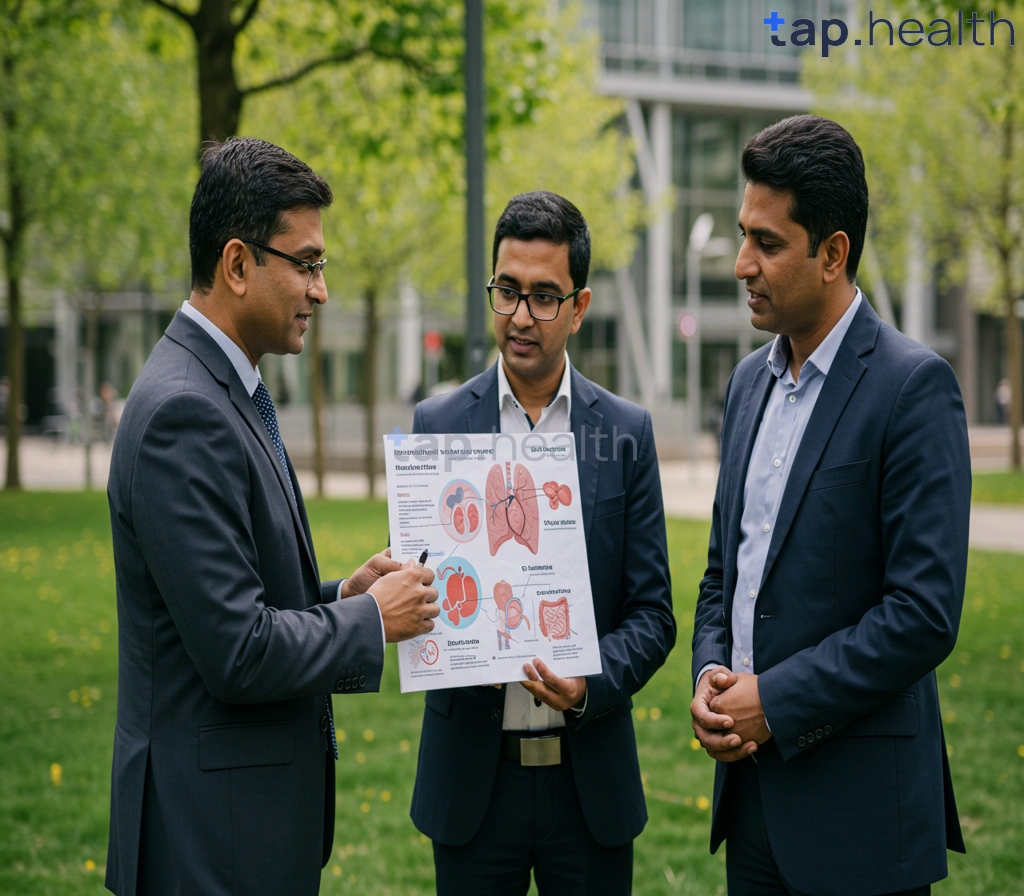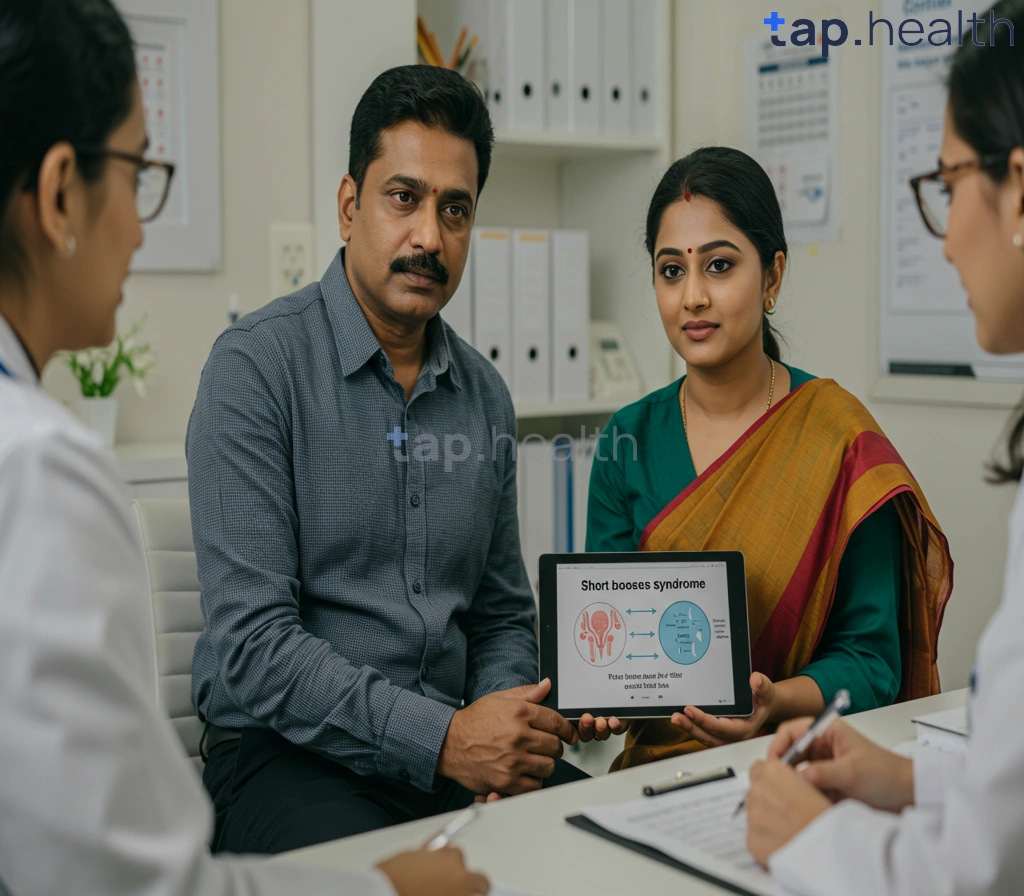Table of Contents
- Diabetes & Organ Transplant: Navigating the Challenges
- Organ Transplant with Diabetes: A Comprehensive Guide
- Can You Get an Organ Transplant with Diabetes?
- Understanding Diabetes Management Post-Transplant
- Improving Your Chances: Diabetes and Transplant Success
- Frequently Asked Questions
- References
Facing a life-altering diagnosis like diabetes can be challenging enough, but imagine adding the complexities of needing an organ transplant. Conquering the Hurdles: Diabetes and Organ Transplant explores the unique set of obstacles individuals face when navigating these two significant health concerns. This blog will delve into the intricacies of managing diabetes before, during, and after transplant surgery, offering insights and support for patients, families, and healthcare professionals alike. We’ll examine the increased risks, specific treatment considerations, and strategies for improving long-term outcomes. Let’s begin our journey together toward understanding and overcoming these significant hurdles.
Diabetes & Organ Transplant: Navigating the Challenges
Diabetes significantly impacts the possibility of organ transplantation, presenting unique hurdles for patients in India and other tropical countries. A major concern is the high prevalence of diabetic nephropathy, a serious kidney complication affecting nearly 30% of individuals with diabetes. This significantly increases the need for kidney transplants, yet simultaneously complicates the transplant process itself. The presence of diabetes can affect the success rate of transplantation and increase the risk of post-transplant complications.
Understanding the Increased Risks
For individuals with diabetes in India and tropical regions, accessing timely and effective diabetes management is often challenging. Poorly controlled blood sugar levels can damage blood vessels, hindering the healing process post-transplant and increasing the likelihood of rejection. Furthermore, pre-existing conditions associated with diabetes, such as hypertension and cardiovascular disease, add further complexities to the transplantation procedure. The already strained healthcare infrastructure in many regions compounds these difficulties, leading to longer wait times and potential delays in crucial treatment.
Improving Outcomes: Prioritizing Pre-Transplant Care
Effective management of diabetes before and after the transplant is crucial for success. This includes strict blood sugar control, careful monitoring of blood pressure, and adherence to prescribed medications. Seeking expert advice from a nephrologist and diabetologist experienced in transplant care is vital. In India and tropical climates, special attention should be given to managing infections, common complications exacerbated by diabetes. Active participation in support groups and educational programs can empower patients to navigate these challenges effectively and improve their chances of a successful transplant. Understanding the long-term implications, especially as discussed in Managing Diabetes as You Age: Challenges and Solutions, is also crucial for pre-transplant planning.
Taking Control: Your Next Steps
For those facing the realities of diabetes and organ transplantation in India and tropical countries, proactive engagement with healthcare professionals is paramount. Seeking consultations with specialists early on is key to optimizing transplant outcomes. Explore available resources and support systems within your community to ensure optimal management of your diabetes and enhance your chances of a successful transplant. Remember, informed choices and diligent self-management are crucial steps towards improving your health and well-being. It’s also important to dispel any myths surrounding the transmission of diabetes; Can Diabetes Be Transmitted? Understanding the Facts and Myths clarifies common misconceptions.
Organ Transplant with Diabetes: A Comprehensive Guide
The staggering statistic that 50% of diabetes cases worldwide remain undiagnosed, as highlighted by the International Diabetes Federation, underscores the critical need for greater awareness, especially in Indian and tropical countries. This high prevalence significantly impacts the landscape of organ transplantation, presenting unique challenges and considerations for both patients and medical professionals. Managing diabetes effectively is paramount before, during, and after an organ transplant.
Challenges of Diabetes in Organ Transplantation
Diabetes increases the risk of complications during and after transplantation. High blood sugar levels can impair wound healing, increase the risk of infection, and negatively affect the function of the transplanted organ. Furthermore, immunosuppressant drugs, crucial for preventing organ rejection, can further complicate diabetes management, often requiring careful adjustments to medication dosages. In tropical climates, pre-existing conditions exacerbated by heat and humidity can present additional hurdles. Understanding the implications of diabetes on blood donation is also crucial; for instance, see the guidelines in Can a Diabetic Person Donate Blood: Guidelines & Facts.
Strategies for Successful Transplantation
Careful pre-transplant planning is essential. This includes rigorous diabetes management to achieve optimal glycemic control, minimizing complications. Close monitoring of blood sugar levels throughout the entire process is vital, often requiring frequent adjustments to insulin therapy or oral medications. Post-transplant, patients require continuous monitoring and meticulous adherence to medication regimens, under the close supervision of a multidisciplinary team including diabetologists and transplant specialists. Access to quality healthcare and consistent monitoring is especially critical in resource-constrained settings common in many Indian and tropical regions. The question of plasma donation with diabetes is also frequently raised; you can find more information in Can You Donate Plasma If You Have Diabetes?.
Seeking Expert Care in India and Tropical Countries
Individuals with diabetes considering organ transplantation in India and tropical countries should seek specialized care from experienced transplant centers with dedicated diabetes management programs. These centers should possess the resources and expertise to navigate the complexities of managing diabetes alongside the immunosuppressive therapy required after transplantation. Early intervention and proactive management are key to improving outcomes and enhancing the quality of life for patients. Don’t hesitate to seek expert advice and initiate the necessary steps towards a healthier future.
Can You Get an Organ Transplant with Diabetes?
Diabetes significantly impacts organ health, making organ transplantation a complex issue for many. The question of whether someone with diabetes can receive a transplant is not a simple yes or no. It depends heavily on several factors, including the type and severity of diabetes, overall health, and the availability of suitable organs. The reality is that diabetes does not automatically disqualify someone from receiving a transplant, but it presents unique challenges. A significant percentage of those living with diabetes fall within the 20-64 age group (61%), a demographic often considered for organ transplantation. However, older individuals with diabetes (39% are aged 65+), also face transplant considerations.
Navigating the Challenges
Managing blood sugar levels is crucial before, during, and after a transplant. Poorly controlled diabetes can increase the risk of infection, rejection, and other complications, impacting the success of the transplant. Therefore, rigorous pre-transplant assessment and preparation are essential. This involves detailed medical evaluations, lifestyle modifications, and potentially intensive diabetes management strategies. In many Indian and tropical countries, access to specialized diabetes care and transplant centers might be limited, adding another layer of complexity to the process. Finding a transplant center with experience managing patients with diabetes is particularly important. Understanding how diabetes affects blood flow is also critical; learn more by reading our article on How Does Diabetes Affect Blood Flow?.
Hope and Possibilities
Despite the challenges, successful organ transplants are possible for individuals with diabetes. Many people with well-managed diabetes receive transplants and enjoy improved quality of life. The key is proactive management, thorough assessment, and collaboration with a skilled medical team experienced in transplant care. It is vital to consult with a transplant specialist and diabetologist for personalized advice and guidance. If you are living with diabetes in India or another tropical country and considering an organ transplant, actively seek out information and connect with specialized healthcare professionals for the best chance of a successful outcome. Early planning and proactive management are crucial. For those considering donation, the question of whether Type 1 diabetics can donate blood is frequently asked; see our article Can Type 1 Diabetics Donate Blood? for more information.
Understanding Diabetes Management Post-Transplant
The Challenges of Co-existing Conditions
The global burden of diabetes is significant, with over 75% of people living with this condition residing in low- and middle-income countries, as highlighted by the International Diabetes Federation. This statistic is particularly relevant in many Indian and tropical countries where access to advanced healthcare and specialized diabetes management can be limited. For individuals in these regions who have undergone organ transplants, managing diabetes presents an even greater challenge. The immunosuppressant medications necessary to prevent organ rejection can significantly impact blood sugar control, increasing the risk of complications.
Strategies for Effective Post-Transplant Diabetes Management
Careful monitoring is paramount. Regular blood glucose checks, along with HbA1c testing, are crucial for tracking blood sugar levels and adjusting medication accordingly. Close collaboration with a multidisciplinary healthcare team, including diabetologists, transplant specialists, and nephrologists (especially pertinent for kidney transplants), is essential. This team approach ensures a holistic management plan tailored to individual needs. In many Indian and tropical countries, access to such specialized care might be limited; therefore, proactive engagement with healthcare providers is crucial for navigating the complexities of diabetes post-transplant.
Lifestyle Modifications and Regional Considerations
Beyond medication, lifestyle modifications play a critical role. A balanced diet, regular exercise, and stress management techniques are vital. However, cultural and dietary practices in various Indian and tropical countries need to be considered when crafting a personalized plan. Working with healthcare professionals to integrate these aspects into a sustainable approach is important. For instance, adapting traditional recipes to reduce sugar content can be a practical strategy. For more tips on effective management, check out our blog on 10 Proven Tips for Effective Diabetes Management.
Empowering Patients in India and Tropical Countries
Access to comprehensive diabetes education is crucial for successful long-term management, particularly in low-resource settings. Patients in India and tropical countries should actively seek information and support from reliable sources, including healthcare professionals and patient support groups, to navigate the challenges of managing diabetes following an organ transplant. Proactive engagement is key to a positive outcome. Maintaining a strong immune system is also vital; learn more about Boosting Immunity While Managing Diabetes.
Improving Your Chances: Diabetes and Transplant Success
Diabetes significantly impacts organ transplant eligibility and outcomes. However, understanding the challenges and proactively managing your condition can dramatically improve your chances of a successful transplant. Up to 80% of Type 2 diabetes cases can be delayed or prevented through lifestyle changes, highlighting the crucial role of proactive health management. This is especially important in Indian and tropical countries where diabetes prevalence is high.
Managing Diabetes for Transplant Eligibility
Effective diabetes management is paramount. This involves achieving and maintaining optimal blood glucose levels, blood pressure control, and healthy cholesterol levels. Strict adherence to prescribed medications, regular monitoring, and a healthy diet are essential. In the Indian context, incorporating traditional dietary practices alongside modern medical advice can create a holistic approach to diabetes management. This might include focusing on whole grains, pulses, and fresh vegetables, readily available in many tropical regions.
Lifestyle Changes for Better Outcomes
Beyond medication, lifestyle modifications are crucial. Regular exercise, weight management (if needed), and stress reduction are key components of a successful pre-transplant strategy. These changes not only improve diabetes control but also enhance overall health and strength, aiding in post-transplant recovery. Consulting with a doctor and a registered dietitian familiar with the specific dietary needs and challenges common in tropical climates is vital for personalized guidance. For more information on creating a personalized diabetes management plan, check out Personalized Diabetes Control: Your Key to Better Health.
Seeking Expert Advice in India and Tropical Countries
Access to specialized healthcare is critical. Connecting with transplant centers and endocrinologists experienced in managing diabetes in individuals undergoing transplantation is paramount. Many hospitals in India and other tropical countries offer specialized diabetes clinics and transplant programs. Proactive engagement with these resources can substantially improve your chances of a successful outcome. Remember, consistent effort in managing your diabetes is your best asset in your journey towards a successful organ transplant. Understanding the impact of diabetes education is also crucial; learn more about it by reading How Diabetes Education Enhances Health Outcomes – Tap Health.
Frequently Asked Questions
Q1. How does diabetes affect organ transplant procedures?
Diabetes significantly increases the risk of complications during and after organ transplantation. High blood sugar levels impair healing, raise infection risk, and increase the chance of organ rejection. Conditions often associated with diabetes, such as kidney disease, hypertension, and cardiovascular disease, further complicate the process.
Q2. What steps are crucial for successful organ transplantation in diabetic patients?
Strict blood sugar control before and after the transplant is essential. This includes carefully following medication plans and making healthy lifestyle changes. Working closely with a team of doctors experienced in transplant care, including nephrologists and diabetologists, is vital for personalized management and improved outcomes.
Q3. What are the common challenges faced by diabetics undergoing organ transplantation, especially in regions like India?
In areas like India, the high prevalence of diabetes and limited access to quality healthcare present unique challenges. Diabetic nephropathy (kidney disease) increases the need for kidney transplants but also makes the procedure riskier. Ensuring consistent access to optimal medical care and resources is a major hurdle.
Q4. How can I improve my chances of a successful transplant if I have diabetes?
Proactive management is key. This includes working closely with your healthcare team to achieve and maintain optimal blood sugar levels, adhering strictly to medication plans, and adopting a healthy lifestyle. Early intervention and personalized care plans significantly improve the chances of a successful outcome.
Q5. What role do healthcare professionals play in organ transplantation for diabetic patients?
Expert consultation with nephrologists and diabetologists experienced in transplant care is crucial. These specialists will work with you to create a personalized plan to manage your diabetes before and after the transplant, minimizing risks and maximizing the chances of a successful outcome.
References
- A Practical Guide to Integrated Type 2 Diabetes Care: https://www.hse.ie/eng/services/list/2/primarycare/east-coast-diabetes-service/management-of-type-2-diabetes/diabetes-and-pregnancy/icgp-guide-to-integrated-type-2.pdf
- Diabetes Mellitus: Understanding the Disease, Its Diagnosis, and Management Strategies in Present Scenario: https://www.ajol.info/index.php/ajbr/article/view/283152/266731




